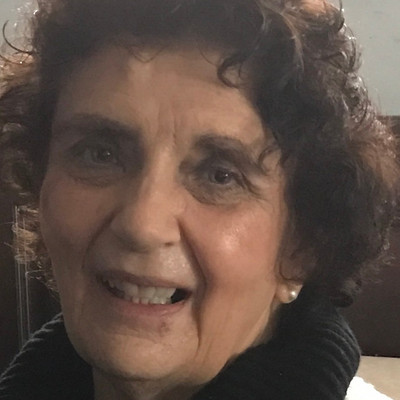
Devika Prasad
Together, we will:
cultivate new responses to life's challenges! Through practical exercises, we'll explore tools that promote a sense of grounding, boost confidence, challenge thoughts, and empower you to feel more in control of your life.
View Profile
Are We a Match?
Take Our SurveyDevika Prasad
Together, we will:
cultivate new responses to life's challenges! Through practical exercises, we'll explore tools that promote a sense of grounding, boost confidence, challenge thoughts, and empower you to feel more in control of your life.
Something to know about my approach is:
I will have unconditional positive regard for you and your healing process. I have been providing over 7 years of CBT to young adults going through various life transitions. I believe structure and outcomes are important in healing!
FOCUS AREAS:
- Domestic Violence
- First Generation Issues
- Graduate Students
- Insomnia and Sleep Problems
- Obsessive-Compulsive Disorder (OCD)
- Trauma


Tara Lineberry
Together, we will:
I consider myself a generalist therapist, but I do specialize in trauma and eating disorders. Clients will be able to work with me on depression, anxiety, relationship issues, and any other mental health concerns.
View Profile
Are We a Match?
Take Our SurveyTara Lineberry
Together, we will:
I consider myself a generalist therapist, but I do specialize in trauma and eating disorders. Clients will be able to work with me on depression, anxiety, relationship issues, and any other mental health concerns.
Something to know about my approach is:
I'm an EMDR trainer therapist, but I do not believe that therapy is a one size fits all so I utilize multiple therapeutic interventions to ensure individualized treatment for every client. I utilize a person center, strengths perspective approach.
FOCUS AREAS:
- Anorexia
- Anxiety
- Anxiety in Relationships
- Binge Eating
- Borderline Personality
- Child Abuse
- Complex Trauma
- Domestic Violence
- Eating Disorders
- Generalized Anxiety Disorder
- High-Functioning Anxiety
- Major Depressive Disorder
- Postpartum Anxiety
- Postpartum Depression
- Post Traumatic Stress Disorder (PTSD)
- Sexual Abuse
- Substance Abuse Intervention
- Trauma


Claudia Orfao-Martin
Together, we will:
As a Clinical Social Worker in this large private practice, I provide treatment to youngsters as young as three to seniors as old as age 82. Lets go on this journey to mental wellness together
View Profile
Are We a Match?
Take Our SurveyClaudia Orfao-Martin
Together, we will:
As a Clinical Social Worker in this large private practice, I provide treatment to youngsters as young as three to seniors as old as age 82. Lets go on this journey to mental wellness together
Something to know about my approach is:
I also work closely with psychiatrists and other practitioners to maker certain that our clients receive the most comprehensible treatment available
FOCUS AREAS:
- Anger Management
- Depression
- Grief


Frank Gomez
Together, we will:
During our sessions, anticipate a warm, compassionate, and direct approach crafted to address your specific needs and background. Together, we'll explore new perspectives and overcome challenges to cultivate meaningful change in your life.
View Profile
Are We a Match?
Take Our SurveyFrank Gomez
Together, we will:
During our sessions, anticipate a warm, compassionate, and direct approach crafted to address your specific needs and background. Together, we'll explore new perspectives and overcome challenges to cultivate meaningful change in your life.
Something to know about my approach is:
Navigating the waters of mental health and relationships can feel isolating and overwhelming, but you don't have to journey alone. While my background is rooted in Systemic Therapies I offer tailored, evidence-based treatment.
FOCUS AREAS:
- Anxiety
- Coping Skills
- Couples
- Depression
- Family Conflict
- Family Trauma
- Healing From Relationships
- High-Functioning Depression
- Infidelity
- Interracial Relationships
- Mood Regulation
- Parent-Child Relationship
- Premarital Counseling
- Racial Trauma
- Relationship Conflict
- Relationship Skills
- Self-Esteem
- Trauma-Related Disorders


Marguerite Flynn
Together, we will:
We'll create a safe, non-judgmental space to explore your concerns, set goals, and build resilience for lasting change. There's no generic solution here; together, we'll craft a personalized treatment strategy that aligns with your goals.
View Profile
Are We a Match?
Take Our SurveyMarguerite Flynn
Together, we will:
We'll create a safe, non-judgmental space to explore your concerns, set goals, and build resilience for lasting change. There's no generic solution here; together, we'll craft a personalized treatment strategy that aligns with your goals.
Something to know about my approach is:
I integrate elements from CBT, DBT, and solution-focused interventions into my therapeutic approach, ensuring a tailored and effective treatment for each client.
FOCUS AREAS:
- Anxiety Disorders
- Children
- Depressive Disorders
- Disordered Eating
- Family Dynamics
- LGBTQ+
- Personality Disorders
- Trauma

 OFFERS REMOTE THERAPY
OFFERS REMOTE THERAPY ACCEPTING NEW CLIENTS
ACCEPTING NEW CLIENTS BILINGUAL THERAPIST
BILINGUAL THERAPIST